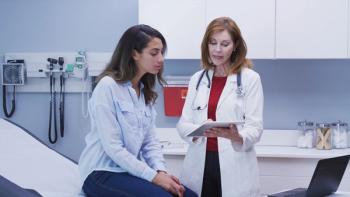
Oncology Nurses: Standing in the Gap
Now oncology nurses are experiencing high levels of stress, anxiety, post-traumatic stress disorder, and even burnout on top of new pandemic pressures. But most continue to uphold their commitment to providing quality patient care while remaining loyal to their colleagues by continuing to show up.
Ironically, the World Health Organization designated 2020 as the International Year of the Nurse and Midwife1 ...and then came a global pandemic. COVID-19 has shifted lives all over the world, but the movement has been especially pronounced for frontline oncology nurses. And as a result, this special group of committed professionals has learned to stand in the gap.
Oncology nurses enter the lives of patients and caregivers during a most difficult time — after a cancer diagnosis – therefore accepting equally difficult expectations for their care. While 46% of Americans reported feeling work-related stress,2 the percentage of nurses feeling the same is understandably much higher. It is this stress, which if unresolved, can deteriorate one’s physical and other dimensions of wellness — mental, social, and occupational.3 And that was before COVID-19.
During this COVID-19 pandemic, cancer caregivers are not allowed to accompany their loved ones into infusion centers during treatments or into hospitals during inpatient stays. This forced reality could be scary and isolating to both the oncology patient and caregiver. Therefore, oncology nurses, through their own psychosocial disturbances, are being called to stand in the gap between patients and families by providing unwavering comfort and reassurance to patients while keeping caregivers updated. This privileged position can come with its own conscious or subconscious stress for nurses, atop the amplified COVID-19 pandemic stresses that nurses bear in their personal and professional lives.
Now oncology nurses are experiencing high levels of stress, anxiety, post-traumatic stress disorder, and even burnout on top of new pandemic pressures. But most continue to uphold their commitment to providing quality patient care while remaining loyal to their colleagues by continuing to show up. This is counter to the traditional notion that added stress can push nurses to leave patient care and explore less stressful career endeavors, implicitly adding to the nursing shortage. Now more than ever, in light of COVID-19, we have to ensure oncology nurses have the necessary space, support, and tools to decrease stress and optimize their health and wellness.
To this end, nurse-led wellness mentorship initiatives could focus on empowering oncology nurses to implement mindset shift strategies that will transform their response to stressors and optimize their personal health and wellness. Utilizing a systematic method or framework to empower nurses to prioritize stressors, strategize plans to optimize their lives — a wellness mentorship initiative will provide support, accountability, and community by virtual facilitation and the integration of pre-recorded bite-size videos around promoting a growth mindset, resilience, stress management strategies, and wellness.
But today I challenge you twice over — to personally check in with an oncology nurse AND explore the idea of developing a formalized systematic way that can both support and empower nurses to overcome their own stress. There are some gap-fillers – waiting for YOU.
References
1. World Health Organization (2020). Year of the Nurse and the Midwife 2020. https://www.who.int/campaigns/year-of-the-nurse-and-the-midwife-2020 _Accessed December 3, 2020.
2. The American Institute of Stress (2020). Workplace Stress. https://www.stress.org/workplace-stress_ Accessed December 3, 2020. Global Wellness Institute (2020). What is Wellness? https://globalwellnessinstitute.org/what-is-wellness/ Accessed December 3, 2020
3. Ford, S. (2020). Global nursing body issues warning on nurse mental health during Covid-19 crisis https://www.nursingtimes.net/news/mental-health/global-nursing-body-issues-warning-on-nurse-mental-health-during-covid-19-crisis-30-04-2020/ Accessed December 3, 2020.
Newsletter
Knowledge is power. Don’t miss the most recent breakthroughs in cancer care.































































































